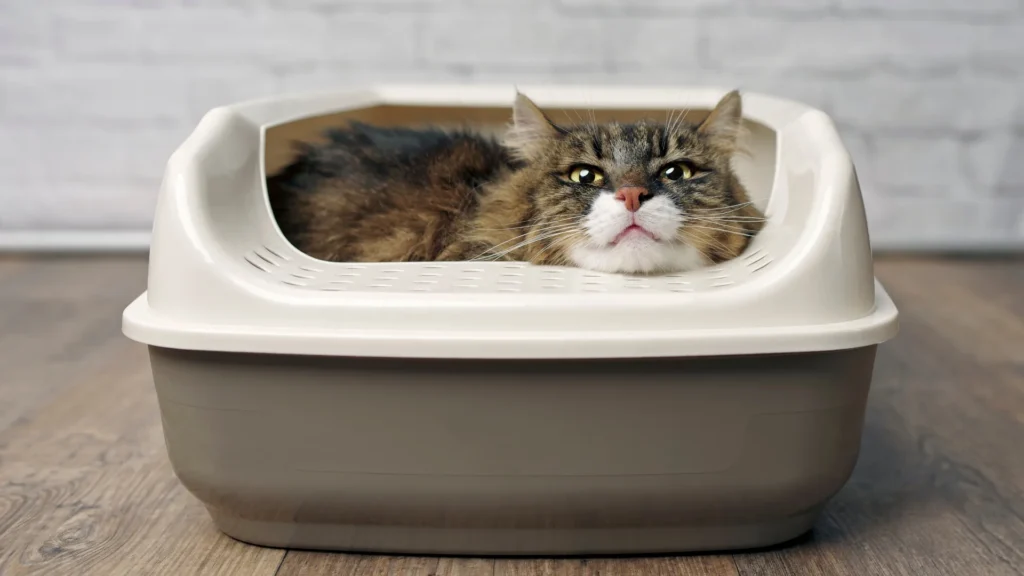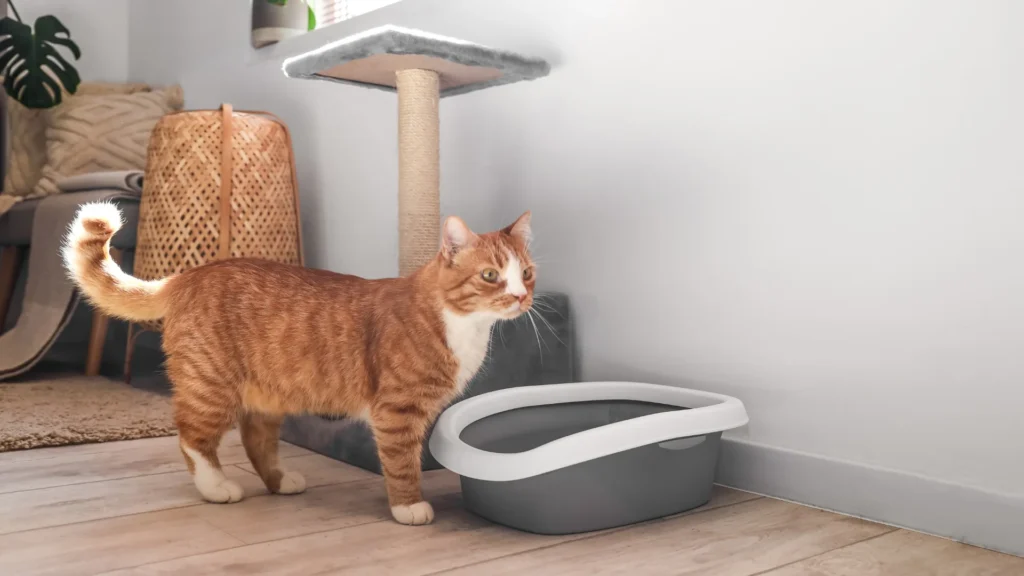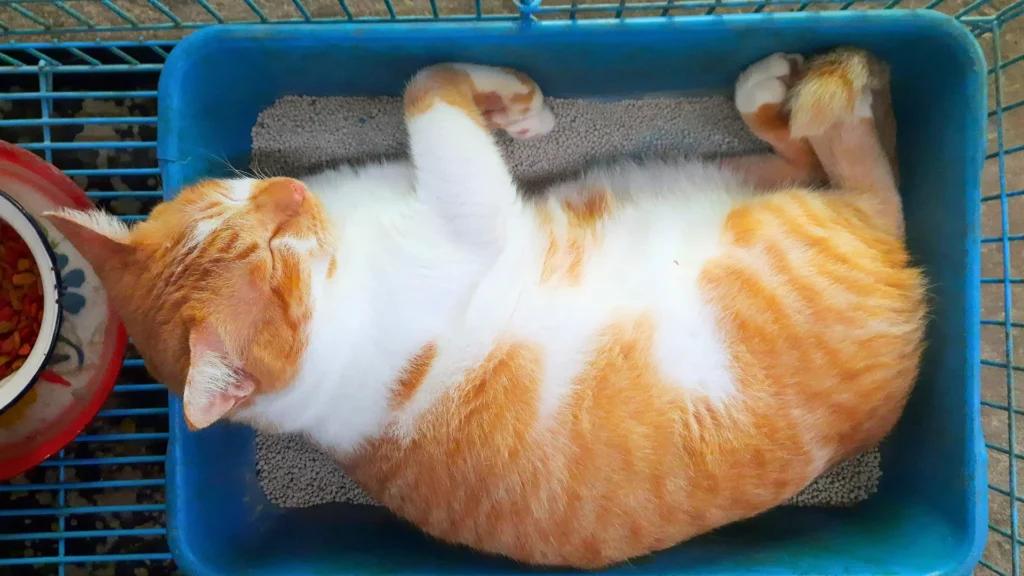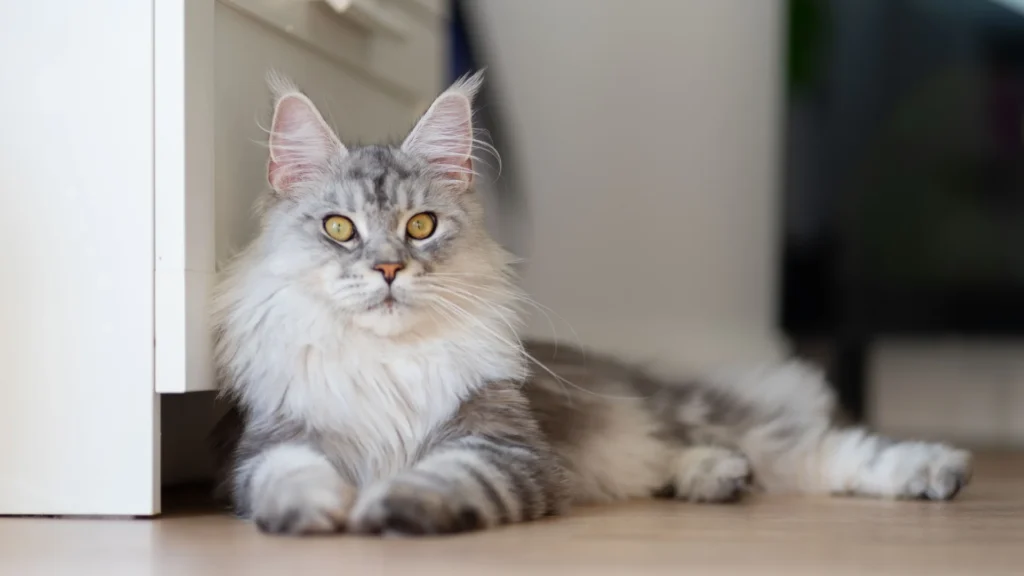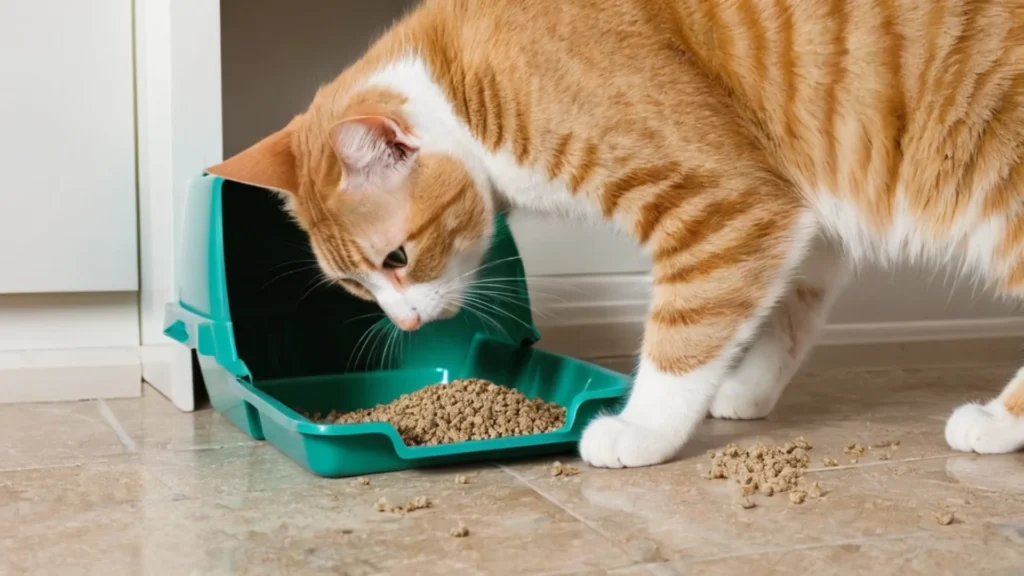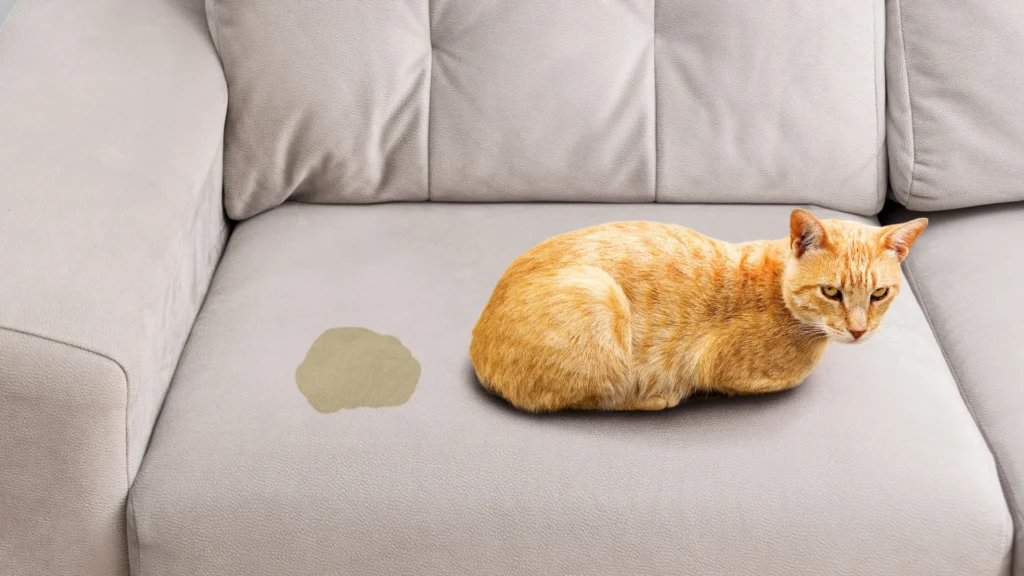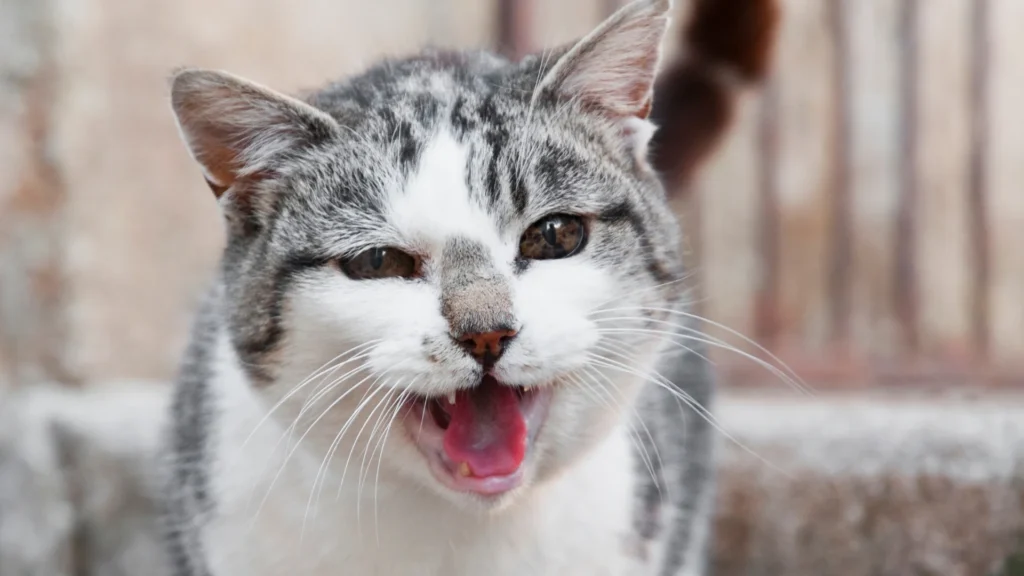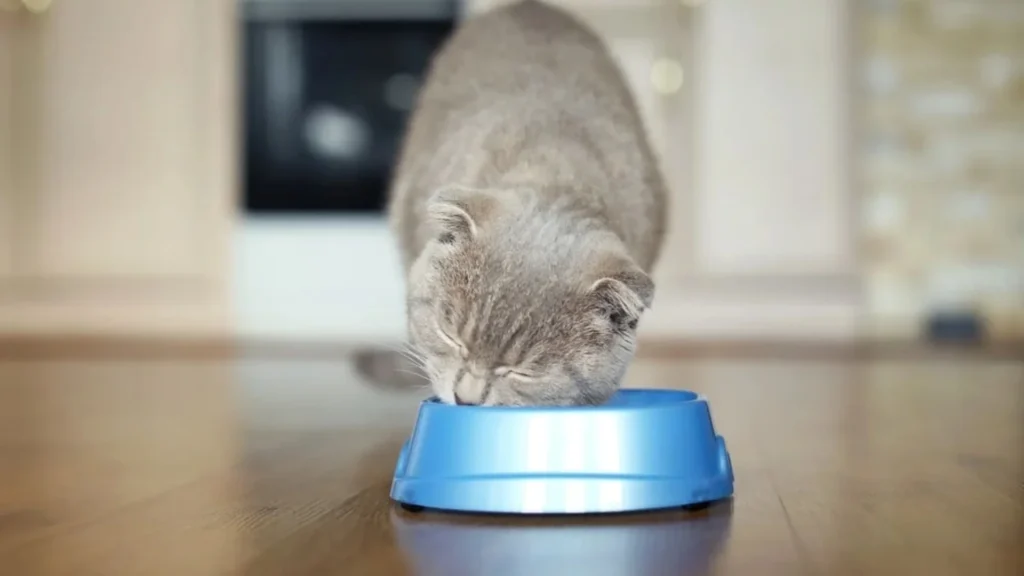Table of Contents
Have you ever found your cat resting in their litter box and wondered why? It’s a common question that puzzles many cat owners. This behaviour might make you stressed or ask questions. Is your cat okay?
In this article, we’re going to see the reasons why your furry companion might choose the litter box as the best place to chill out. Understanding our cats can in some cases feel like solving a confusion problem, but do not stress!
We’ll break it down into straightforward thoughts, from how they could be feeling to possible health stuff you should know. So, let’s jump into this mystery together and discover why the litter box might not be fair for washroom breaks for your kitty.
Common Reasons Why Cats Laying in the Litter Box
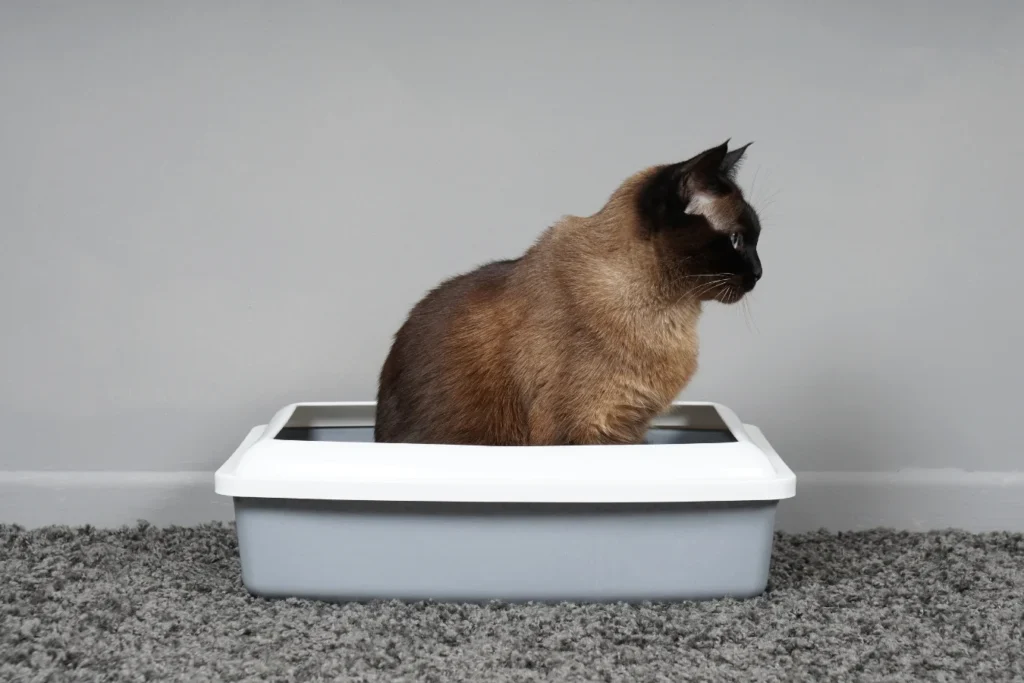
Looking for Comfort
In some cases, cats choose the litter box as a resting spot since it feels safe and cosy. Envision having a small tent or fortification that makes you feel secure; for a few cats, their litter box is rather like that. It’s a spot where they can unwind absent from all the hustle and haste.
Feeling Stressed
Cats can get pushed as well, rather like us. When there’s a parcel of commotion, modern individuals, or other pets around, they might feel a bit overpowered. The litter box can be their calm put where they go to induce absence from it all and calm down.
Health Stuff
On the off chance that a cat is investing a part of its time in their litter box, it could be a sign that they’re not feeling incredible. In some cases, they do this if they have a tummy hurt or on the off chance that planning to the lavatory is awkward. It’s like when we do not feel great, we need to remain near the washroom as well.
It's Cozy
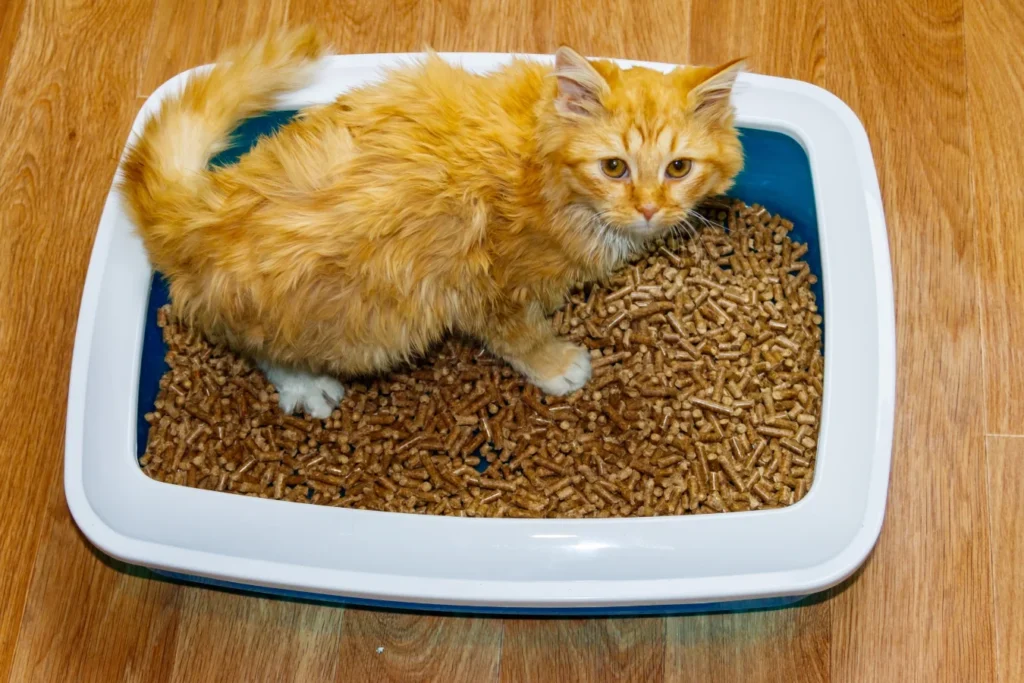
Accept it or not, a few cats might discover the litter box cosy. The litter can be soft and comfortable to lie on, particularly in case the box is in a calm, warm spot. It’s kind of like how we might have a favourite cover or pillow.
However, this comfort can sometimes lead to unwanted behaviors, such as cats using children’s sandboxes as their own personal litter box. For tips on preventing this and keeping your outdoor spaces cat-free, check out our guide on how to keep cats out of the sandbox.
Curiosity and Exploration
Cats are naturally curious and adore to investigate their environment. Now and then, their litter box gets to be a modern point of intrigue, not for any specific reason but basically, since they’ve taken note of something different approximately it or it’s in a spot they haven’t paid much consideration to some time recently.
It’s comparable to how we might all of a sudden discover a spot in our domestic that we’ve never truly taken note of and choose to see what it’s like. For cats, their litter box can now and then become a brief spot of interest, welcoming them to investigate and even nap in as they fulfil their interest.
Maturing and Comfort
As cats get more seasoned, their inclinations and behaviours can alter. Senior cats, in particular, might discover the litter box a more open and comfortable put to rest, particularly in case they’re beginning to have versatility issues or joint pain that makes getting into their usual cosy spots more troublesome.
Think of it as choosing the most comfortable chair within the house that’s least demanding to induce into. For a more seasoned cat, the litter box’s commonplace and easy-to-access nature can make it an engaging resting put, particularly on the off chance that it’s kept clean and in a calm region.
What Actions Cat Owners Can Take?
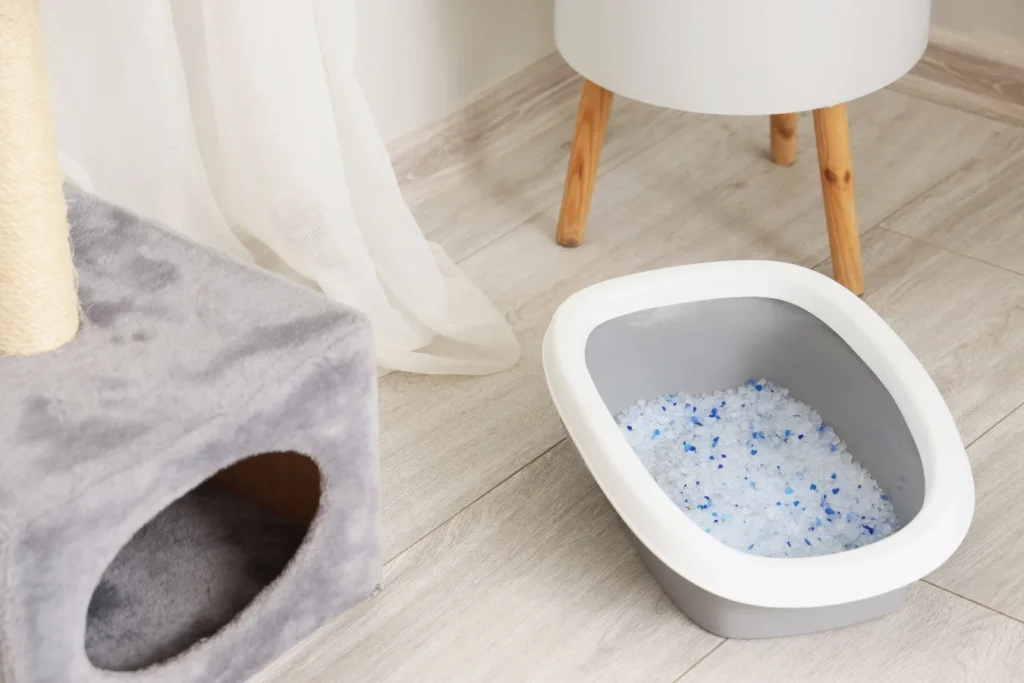
In case you’ve taken note of your cat investing more time in their litter box than normal, you could be wondering what steps you’ll take to guarantee their consolation and health. Here are some genuine and straightforward actions cat owners can take:
1. Keep a Close Eye
Start by observing your cat more closely. Look for any changes in their behaviour, appetite, or litter box habits. Noticing these details can help you understand if the litter box lounging is just a quirky preference or a sign of something more.
2. Make the Home Comfortable
Cats love a calm and quiet environment. You can help them feel safe by:
- Providing Cozy Hideouts: Create snug spots around your home where your cat can retreat to feel secure.
- Maintaining Peace: Try to keep noise and chaos to a minimum, especially where your cat likes to rest.
3. Litter Box Care
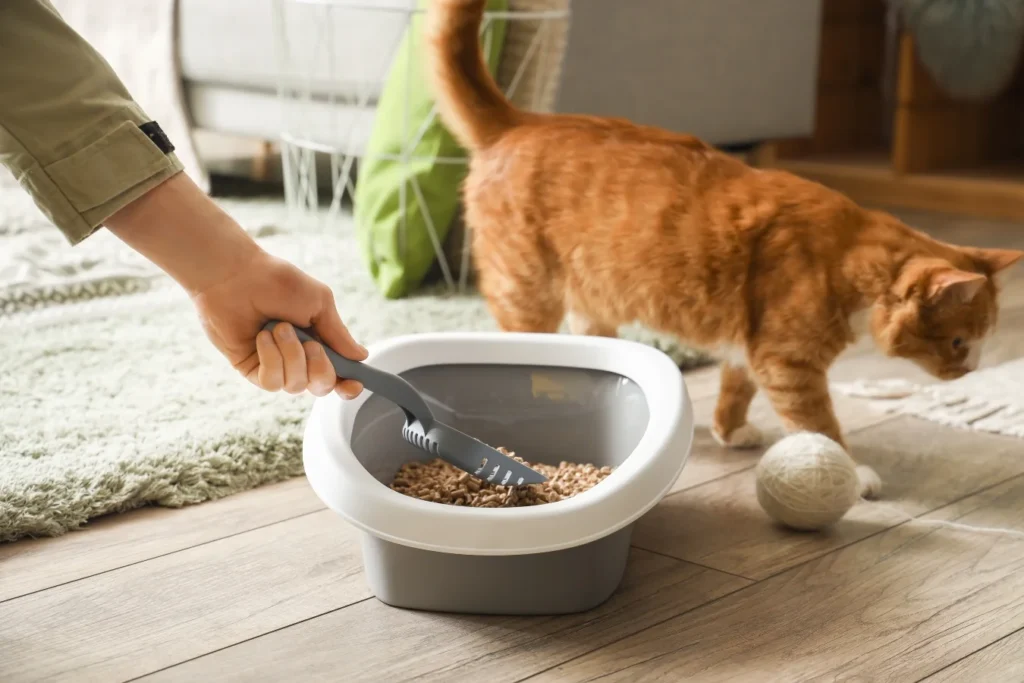
Ensuring the litter box is appealing is crucial:
- Clean Regularly: A clean litter box is inviting to cats. Scoop it daily and change the litter as recommended.
- Multiple Boxes: If you have more than one cat or your home is spacious, having several litter boxes can prevent stress and territorial disputes.
4. Check for Health Issues
Since health issues can in some cases cause unusual litter box behaviour, it’s important. Other than litter box relaxing, keep an eye out for signs of sickness like changes in eating or lavatory propensities.
Visit the Vet: In case you take note of anything stressing, a vet visit is arranged. They can run the show out or treat any well-being concerns.
5. Consider Environmental Stressors
Changes in your home, like new pets, people, or even furniture, can stress cats. Try to introduce changes gradually and give your cat time to adjust. Offering extra attention and reassurance during these times can also help.
6. Provide Entertainment
Sometimes, boredom leads cats to find unusual resting places. Make any doubt your cat has a bounty of toys, play openings, and window sees to keep them invigorated and engaged.
7. Consult a Behaviorist
If your cat’s behaviour is baffling and you’ve ruled out health issues, a professional animal behaviourist can offer insights and solutions tailored to your specific situation.
Frequently Asked Question
Cats may maintain a strategic distance from their litter box on the off chance that it’s not clean sufficient if they’re pushed, or if there’s a change within the family. Keeping the box clean and in a calm area can offer assistance, as well as keeping up a steady schedule.
Yes, cats can be picky around their litter. A sudden switch in sort or fragrance can lead to evasion. Present unused litter slowly by blending it with the ancient one to assist your cat alter.
The common run of the show is one litter box per cat also one additional one. On the off chance that you have one cat, two boxes can prevent regional stretch and cleanliness issues.
Over-the-top burrowing can be a sign of push, an endeavour to check region, or disappointment with the cleanliness of the litter. Guarantee the box is clean and consider natural stressors.
Watch for any signs of push or sickness, assess the consolation and cleanliness of their environment, and counsel a vet in case the behaviour proceeds, because it seems to show wellbeing issues.
Conclusion
Understanding why our furry friends might choose their litter box as a nap spot is key to ensuring their happiness and health. From seeking comfort and dealing with anxiety to health issues and just being curious, there are many reasons behind this behaviour.
By keeping a close eye on them, making our homes more cat-friendly, and not hesitating to consult with a vet, we can help our cats feel secure, loved, and well-cared for. Remember, every cat is unique, and getting to the bottom of their litter box habits can bring us one step closer to providing them with a joyful and comfortable life.

